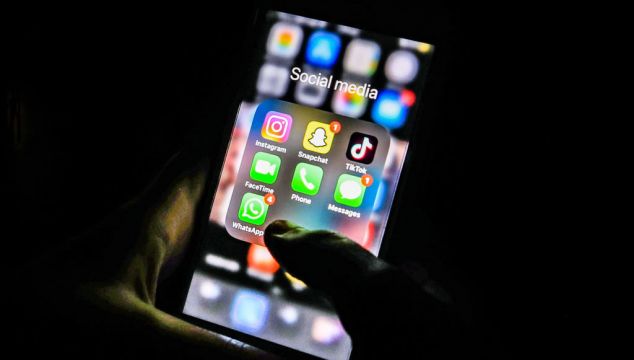More than a third of all young people in Ireland have reported meeting someone face-to-face who they originally got to know online.
A new study by the Economic and Social Research Institute has revealed that meeting online contacts in real life is commonplace among 20-year-olds in the Republic, with many doing it for recreation as well as “social compensation".
However, it also showed that young males are significantly more likely to have a face-to-face encounter with someone they first met in a virtual setting than young females.
The research analysed data on almost 4,300 young people from the national longitudinal study of children, Growing Up in Ireland, to investigate the characteristics and behaviours of 20-year-olds who reported meeting someone in real life whom they first got to know on the internet in the previous 12 months.
Overall, the study – whose findings are published in the International Journal of Adolescence and Youth – found that 34.9 per cent of young people reported meeting someone in person whom they had originally encountered online.
The results highlighted a marked difference between the genders with 37.1 per cent of young males meeting an online acquaintance compared to 27.1 per cent of young females.
It also found that young adults who spent more time on the internet, as well as those who are LGBTI+ and those using dating apps are more likely to have online-to-offline encounters.
Similarly, those who are sexually active at 17 years and those with a trait of “openness” also tend to have higher levels of real-life interactions with people they got to know over the internet.
In addition, those who have early exposure to information and communication technologies, measured as young people who had use of a mobile phone at the age of 9, are associated with increased rates of meeting online acquaintances face-to-face.
The study found young females had half the odds of a face-to-face encounter with someone they first met in a virtual setting than their male counterparts, when all other factors were held constant.
No strong link was discovered between a young person’s employment or education status and their likelihood to meet an online friend in real life.
Similarly, there was no significant association among those who live outside the family home, live in Dublin or who reported having a small number of friends.
'Openness'
The report found young people who displayed the personality characteristic of “openness” had higher odds of meeting someone they met over the internet, while those with emotional stability had a reduced likelihood.
Not surprisingly, a strong association was identified between young people who use dating apps and online-to-offline meetings.
The report’s author and ESRI economist, Dr Gretta Mohan, said it was important to investigate the characteristics and behaviour of young people who meet face-to-face with people they know from “cyber contact”, because such meetings can carry personal safety risks.
She pointed out that while the development of online acquaintances which result in meeting up in real life can allow people to meet a broader range of individuals with similar interests, the use of technology to facilitate meet-ups has also been associated with increased harm through sexual violence, abuse, stalking and harassment.
Dr Mohan said insights derived from the study are intended to be useful for parents, educators and those involved in the lives of young people as well as policymakers responsible for the development of e-safety policies and procedures.
Hesitation
She claimed the gender differences with young males more likely to meet online contacts in person could reflect greater hesitation by females at meeting strangers due to greater safety concerns, societal norms or targeting of online safety awareness campaigns at females.
Dr Mohan said the findings also offered support for the hypothesis that some young people meet online contacts in person as “social compensation” for having a low number of friends in real life.
However, she said this had only been evident in relation to females.
Dr Mohan said the study’s findings showed meeting people from online contacts is common practice among young “digitally native” adults in Ireland.
She claimed the results suggested particular groups might merit special attention including young people who have a non-heterosexual sexual orientation.
Dr Mohan also observed that use of mobile phones by young boys from childhood could potentially blur the lines between the virtual and real world and that they might require help from their parents in distinguishing boundaries.
She added: “Given the estimated associations between the use of online dating apps, sexual activity at 17 and meeting online acquaintances at 20, places which offer sexual health, relationship and counselling services may also provide information and advice.”







